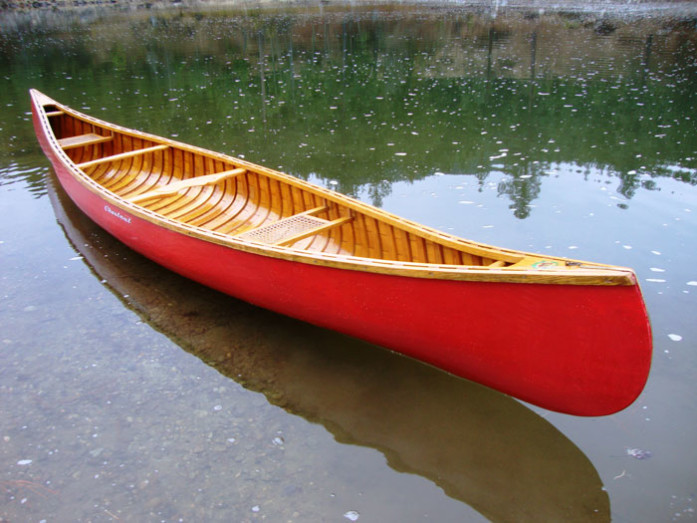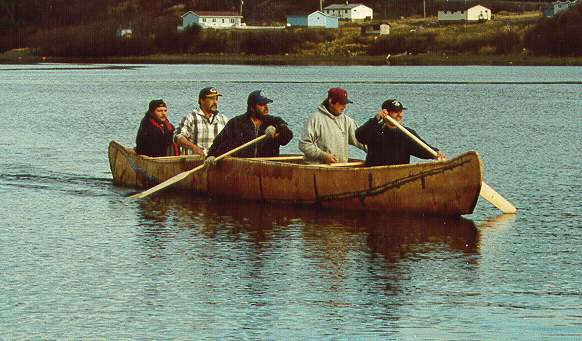A canoe is a lightweight narrow boat, typically pointed at both ends and open on top, propelled by one or more seated or kneeling paddlers facing the direction of travel using a single-bladed paddle. In the UK, however, the term canoe is also commonly used for kayaks despite being technically incorrect.

canoe
[source]
Canoes are used for racing, whitewater canoeing, touring and camping, freestyle, and general recreation. The intended use of the canoe dictates its hull shape and construction material.
Historically, canoes were dugouts or made of bark on a wood frame, but construction materials evolved to canvas on a wood frame, then to aluminum. Most modern canoes are made of molded plastic or composites such as fiberglass. Until the mid-1800s the canoe was an important means of transport for exploration and trade, but then transitioned to recreational or sporting use. Canoeing has been part of the Olympics since 1936. In places where the canoe played a key role in history, such as the northern United States, Canada, and New Zealand, the canoe remains an important theme in popular culture.
Canoes can be adapted to many purposes, for example with the addition of sails, outboard motors, and outriggers.
The word canoe originated from the Carib (an extinct dialect used in Tobago, Dominica, St Vincent, and Trinidad) kenu (meaning dugout), via the Spanish word canoa.
Constructed between 8200 and 7600 BC, and found in the Netherlands, the Pesse canoe may be the oldest known canoe.
[source]
Canoes were made by Australian Aboriginal people, the indigenous people of the Amazon, and many other indigenous people of the Americas. Although susceptible to damage from rocks, they are easily repaired. Their performance qualities were soon recognized by early European immigrants, and canoes played a key role in the exploration of North America. Canoe is also a Canadian symbol.
[This post is based on Wikipedia’s article on canoe.]
If you like what you read, please subscribe to this blog by completing the form. If you want to help more, start by following us on Twitter, and like our page on Facebook. You don’t know what good things may happen. To lighten your day, check our pins on Pinterest, we can be friends there too. Oh, and if you need a really good looking blog attached to your site, or just for fun, to express your feelings more competitively, read this Own Your Website offer! Thank you very much.
Copyright © 2015 The Yacht Owner – Canoe – Definition and History


I must say it was hard to find your page in google. You write awesome posts but you should rank your page higher in search engines.
If you don’t know how to do it search on youtube:
how to rank a website Marcel’s way